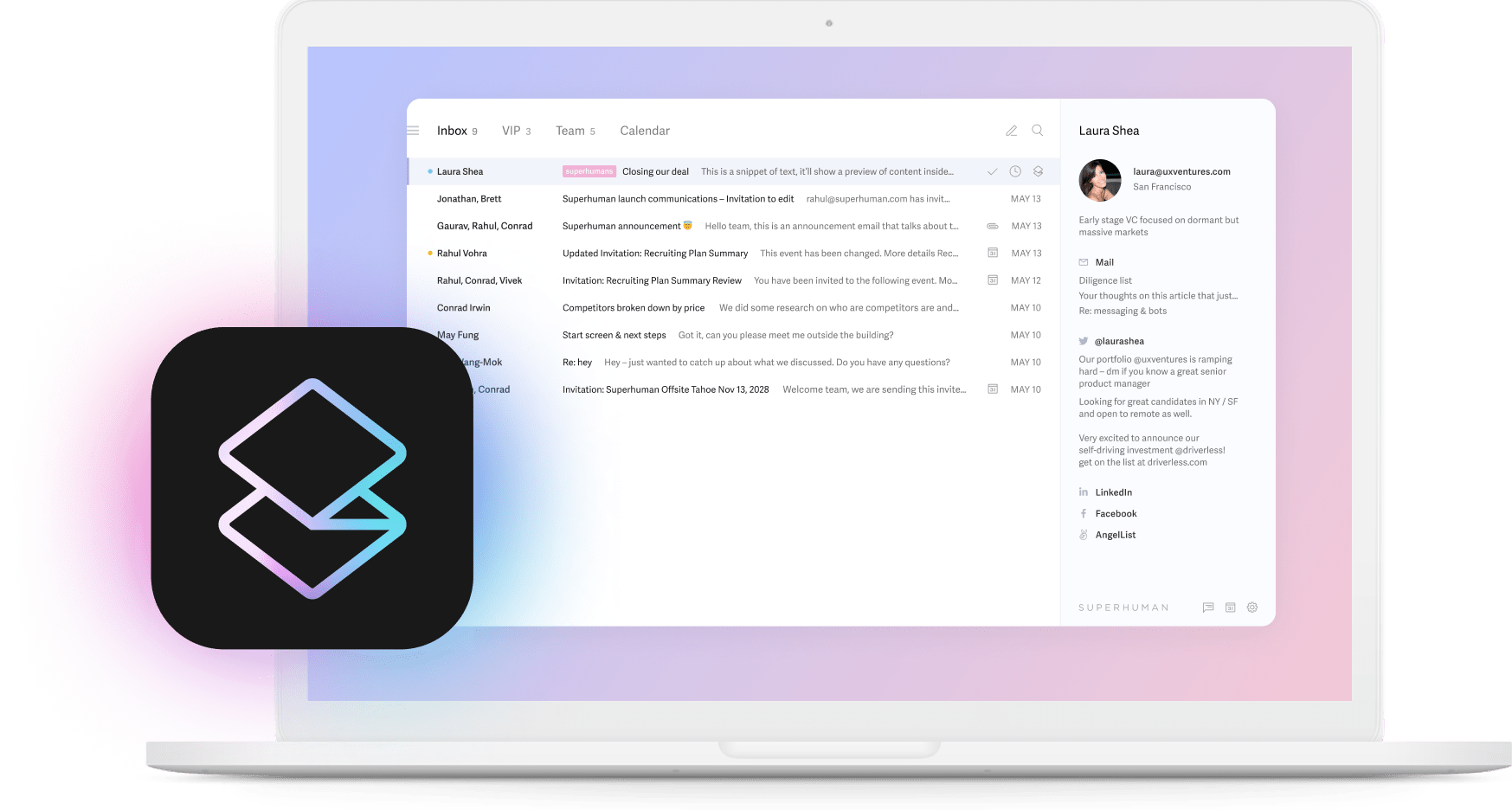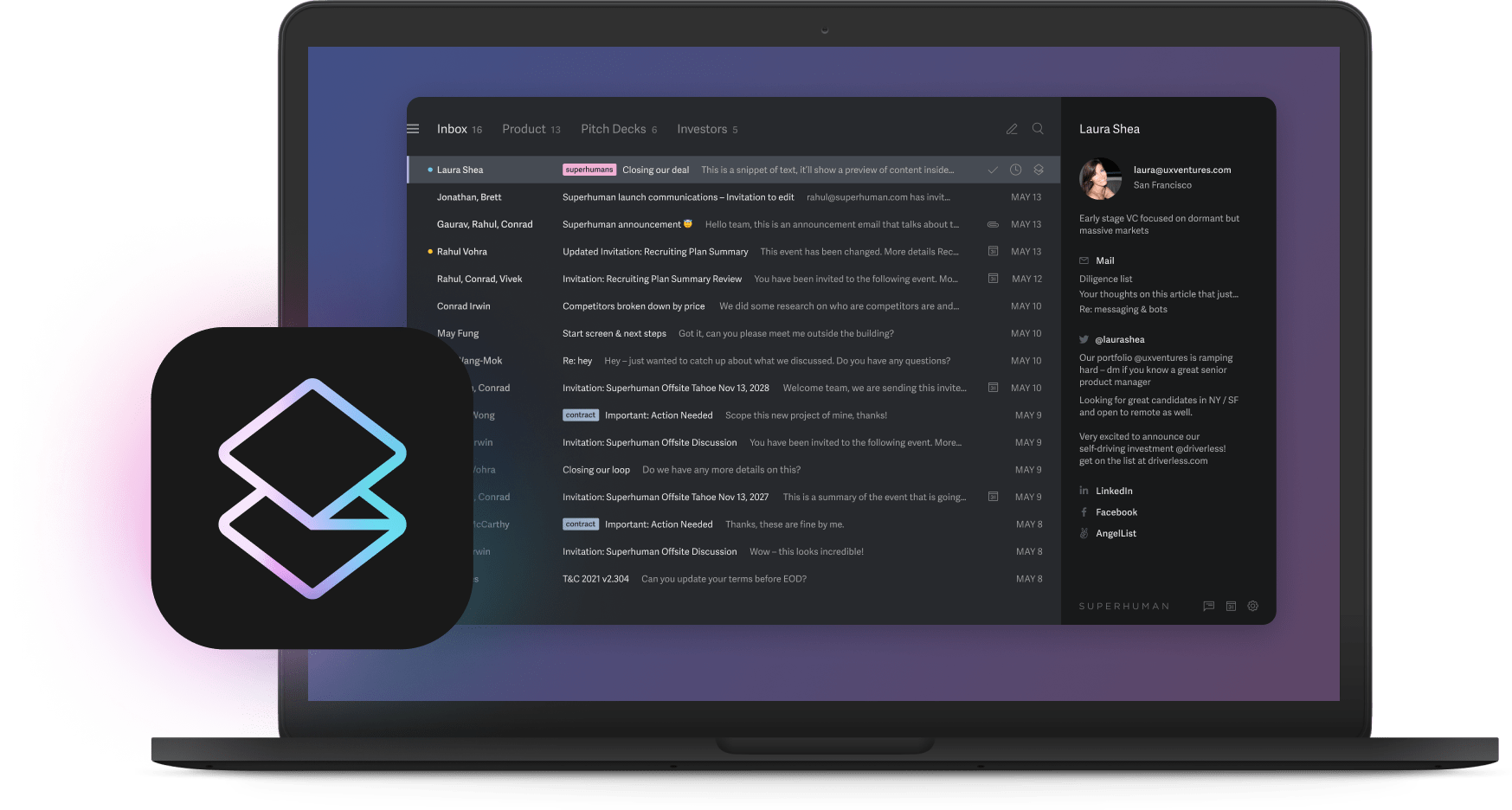
When you find your calling, work can feel like play.
A career imbues life with meaning. It structures your days. It gets you out of your own head, into a team working toward a goal. It helps you afford that fun group Friday dinner, and enjoy it more after a busy week.
But the actual picture… isn't always as rosy.
At times, your team members may feel overworked and undervalued. As deadlines loom and accumulate from all over, they may freeze up, worried they won't live up to anyone's expectations.
They may feel confused about how to advocate for themselves and scared to let colleagues know they're hurting.
They may be distracted by a family conflict. Or a break up. Or the news.
They may even feel like they're constantly working, but never getting enough done, while others in their orbit breeze through tasks so seamlessly. Maybe they're officially burnt out. And hopeless. And… terrified?
But sharing these concerns with employers is finally becoming less taboo, so what can we as leaders do to nurture the right support system?
The turbulent 2020s have ushered in a collective re-evaluation of how our jobs and mental wellbeing mesh. And even though work can exacerbate mental health issues, it can also be part of the solution.
So read on for what companies and team leaders need to know about promoting mental health at work.
Mental health at work: a survey of 1,000 knowledge workers
Work may look a little differently for you than it did a couple years ago. If the pandemic and great resignation have not only changed where you work (be that company or physical location), but also your relationship to your labor, trust us: you're not alone.
To make sense of all the change, we launched our Workplace Wellness Report, which surveyed knowledge workers across industries (half of them working in an office and half remote). Here are some of our biggest findings.
Employee mental health is a shared responsibility
Most knowledge workers surveyed think employee mental health is a joint responsibility between said employee and their company. While anxiety and depression can often cause people to retreat inward and forgo asking for help, employers are now expected to help nurture their team members' wellbeing.
More supportive resources = better workplace mental health
One way for companies to fulfill their responsibility to promote employee mental health is to provide supportive resources. Whether that means subsidizing counselor check-ins, shortening work weeks, offering stipends for self-care activities, or something else, two-thirds (66%) of our knowledge worker respondents report that employer-provided mental health resources positively impacts their job.
Work can (and should!) positively impact your mental health
Thomas Insel, a former director of the National Institute of Mental Health, claimed that the key to mental health recovery lies in "people, place, and purpose". A supportive work environment ideally fosters all three: colleagues to uplift you, an organization (either virtually or in person) to comfort you, and a collective mission to fulfill you.
And thankfully, 46% of the knowledge workers we surveyed said work life impacts their mental health for the better. But more work needs to be done to close the gender gap here — 44% of women who work remote and 42% of women who go to an office felt work aided their mental wellbeing, compared to 50% and 55% of men, respectively.
Prioritizing mental health isn't just about taking care of your employees. It's about creating a more equitable workplace.
The interplay between work and mental health
At any given moment, it's tricky to pinpoint the chicken-or-the-egg relationship between your emotional wellbeing and your job. A troubling personal issue at home can cloud your focus at work and lead to a mistake that irks a client, leaving you feeling even more downtrodden.
Or the issues could start in the office; a supervisor could levy a critical performance review that triggers anxiety that makes it tough to sleep, which in turn makes it even harder to keep up in the office, which in turn makes you more anxious (and more restless).
This to say… work and wellness forge a delicate equilibrium that can easily get thrown out of whack. Which is why you should look out for the warning signs coming from either side.
How work can harm mental health
Research by Mindshare Partners found that 84% of surveyed employees reported at least one workplace factor that negatively affected their mental health. Some of the risk factors include:
- Jobs that are stressful, monotonous, or otherwise "emotionally draining"
- Poor work life balance
- Unrealistic expectations from managers
- Unsupportive colleagues
- Rigid work schedules with inflexible hours
How mental health can affect work
According to the CDC, only 40% of employees who report severe depression receive treatment for it. Mental health conditions impact a person's:
- Job performance
- Engagement with tasks
- Communication with colleagues
- Daily functioning
- Decision-making
How can employers create a healthy workplace?
While there's no shortage of workplace stressors, companies can have a massive impact on employee mental health. Work can't always be emotionally uplifting. But a healthy company culture can make team members feel valued amid the darker moments.
Take it from Kristen Hayward, head of people here at Superhuman, who said that workplace cultures nurturing psychological safety are vital for a company's success.
And there are plenty of ways to cultivate a workplace that prioritizes people's emotional wellbeing. Here's a good starting point…
Offer supportive mental health resources
Mental health resources are the most impactful support mechanisms employers can provide. For employees experiencing mental illness or acute mental health problems, that sometimes means subsidizing clinical services.
But at minimum, most people could use occasional check-ins that teach coping strategies and empower employees to take care of themselves during rough patches. Specific mental health services companies should provide include:
- Employee assistance programs (EAPs). These are voluntary, work-based programs that offer free (and confidential) assistance with personal or work-related problems.
- Free or subsidized clinical screenings. Your team members aren't experts — they need to partner with mental health professionals to understand their own health needs. These consultations can help them make sense of their current headspace, as well as refer them to further resources.
- Mental self-assessment tools. These questionnaires, quizzes, and guides function as wellness check-ups, which can help employees take stock of their work-life balance and mood levels.
- Health insurance with mental health care benefits. The hefty price tag of therapy is a huge barrier to entry for employees who would otherwise seek it out. As are prescription medications, psychiatry, and counseling services without insurance that helps cover costs. With the growing realization that mental health is health, employees should feel financially supported when seeking out wellness services.
Less presenteeism, more flexibility
Does it matter when, or even how often, employees work, provided they're getting the job done well and on time? Presenteeism is the implicit or explicit pressure to work long hours and be constantly available. As it turns out, the tyranny of an infinitely green circle next to your Slack photo isn't always great for your wellbeing (or productivity, for that matter). But according to our wellness survey, nearly three-quarters of remote knowledge workers feel like they're expected to be online for the entire workday.
What employees crave instead is flexibility. Sometimes that means formalized days off every week — 72% of knowledge workers said a four-day work week would make them twice as likely to stay with their company. But sometimes it just means feeling empowered to watch a movie on a Wednesday after lunch if you're on top of all your responsibilities.


Give employees a say
Workplace flexibility signals that you care about employee wellness. If you're unsure how else to help team members with mental health issues, ask them! If they're a part of your formal decision-making process, they'll be able to carve out a lifestyle that suits them and produces their highest-quality work.
Offer values and perks
It's one thing to help team members out after they've already voiced mental health concerns. But if you formalize wellness as a standout company value, you can ensure they feel supported well before any painful flare ups.
But this goes well beyond lip service. Before sharing any platitudes about fostering inclusive company culture, make sure your company is up to the task of delivering. According to Kristen Hayward (our head of people), "the disconnect between actions and words misleads candidates and employees and creates mistrust and disengagement. An important part of company culture is leadership looking in the mirror and being honest about what actually is valued and what employees can expect". Adopting horizontal leadership company-wide makes this 10x easier.
Also, while insufficient on their own, company perks can help nurture a mentally healthy workplace. Whether that means putting dedicated relaxation spaces in your office, subsidizing gym memberships, or even treating team members out to lunch every now and then, the smallest of initiatives that show you care can go the longest of ways.
Train managers
Companies will find themselves ill-equipped to deal with mental health at work if they don't teach supervisors how to spot signs of burnout, anxiety, and depression.
Preventative workplace mental health training gives managers a toolkit for identifying when their employees are going through a hard time and then teaching them how to address it.


How can team leaders prioritize mental health at work?
Now that we've discussed how companies can collectively address workplace mental health concerns, it's time to narrow our focus to individual team leaders. Because your personal mental health matters! And you want to give struggling employees good, practical advice for comfortably living inside their own heads.
Share your experiences with colleagues you trust
It's hard to be vulnerable with others when you're feeling lousy. But we're social creatures, and connecting with colleagues can make you feel less alone. Your co-workers may have gone through similar experiences and have advice for you. Even if not, they can be a helpful, soothing sounding board.
Sharing your experiences also reduces the stigma around mental health, making others feel more empowered to speak up when they aren't OK.
That said, your colleagues generally aren't family members or certified mental health professionals, and you shouldn't feel obligated to share information you'd rather keep private. But if you trust someone you work with and are willing to get burdensome feelings off your chest, they can probably help you out.
Foster a culture where breaks and vacations are encouraged
Breaks, no matter how long, are an important way to recharge. So log off for a spell!
If your company has paid vacation days, take all that time off while encouraging your team to do the same. But you don't need entire days off to enjoy a mental health break. Walk around outside. Meditate for five minutes. Call a loved one and revisit the last time you had a good laugh together.
These kinds of short, intentional breaks where you avoid work entirely will help you get more done once you log back in.
Empower your team members to set boundaries
Employees want to impress their supervisors, and many even enjoy keeping busy. But overworking is dangerous and can lead to burnout. According to one study, working overtime leaves you more susceptible to major depressive episodes. What's more, if you overpromise, you may well underdeliver on important work that demands your full attention.
So encourage employees to gauge their workloads — what amount is uniquely healthy for them? It's easy to fall into the comparison trap here and try to keep up with workaholics. But everyone's running their own race, at their own pace. So check in with your team and ensure they have the right amount of work on their plate, delegating when needed.
Prioritize physical health
Your brain and body are in this together. Team leaders should encourage employees to get enough sleep, and nurture a work-life balance that allows them enough time to eat healthy meals, exercise, and go outside.
Some (all?) of this can easily go by the wayside when work gets busy. But subtle sleep, diet, and exercise tweaks can do wonders for anyone's emotional wellbeing.
Practice gratitude
It may sound hokey, but it works. Saying thank you makes you feel more positive about relationships, and studies have shown an association between gratitude and emotional well-being.
You can cultivate this by writing thank you notes to colleagues who've helped you out, postcards to friends and family when you're thinking about them, or even maintaining a gratitude journal where you spend a few minutes every day jotting down what you're thankful for.
Set goals
Deliberate goal-setting gives you a roadmap for identifying, measuring, and accomplishing your biggest aspirations. And it's a helpful way to evaluate mental health. Team leaders can provide periodic check-ins with employees (at said employee's discretion) to discuss how people are feeling about work, how they'd like to feel, and how they can be helped out.
Keep a routine
Routines improve health, motivation, and self esteem. If you try to stick to a fixed schedule, you'll likely sleep better and report lower stress levels.
Of course, life gets in the way. But even the smallest task, like making your bed every morning as soon you wake up, can pave the way for bigger commitments down the road. If you stick to a new routine for a few weeks, reward yourself!
Limit your time on email
Your inbox likely needs some of your attention, but it can easily demand way too much of it. Checking email constantly is not only a massive time suck but also a mental health strain. Why? Because the constant notifications interrupt focus sessions that make tasks take longer, often causing work time to bleed into leisure.
Our brains also see all the checking, reading, and writing as a neverending set of tasks we can never fully finish, so it's no wonder why employees report higher anxiety levels when they check their inboxes outside of work hours.
There will always be a reason to keep checking your email. Instead of opening your inbox every time you get a new email, process your inbox 1-2x a day. This way, you can cultivate a flow state with important work, while devoting your full attention to your inbox within designated time slots.
Try Superhuman for emailPutting your mental health front and center
We can try to cloister our personal feelings from our work lives. But should we?
We're all human, prone to bad days when getting a job done is maybe… not the most important thing we should be doing. It's OK if we're not always titans of productivity.
So let's take care of ourselves. And each other. The work will be there when we get back.


